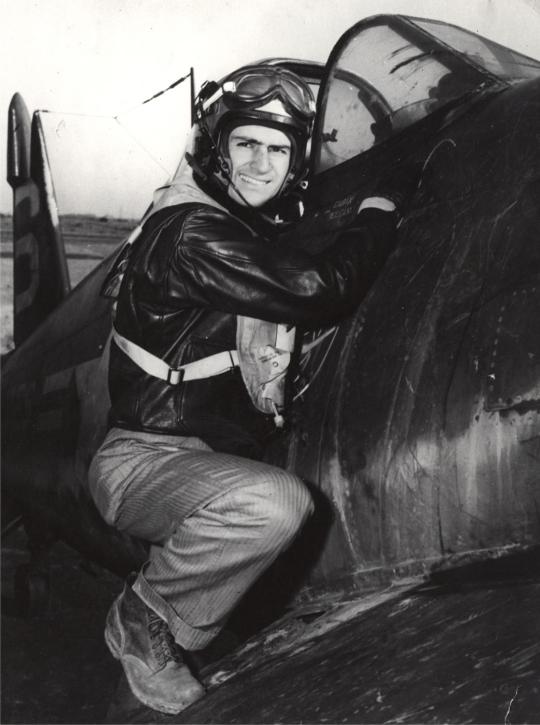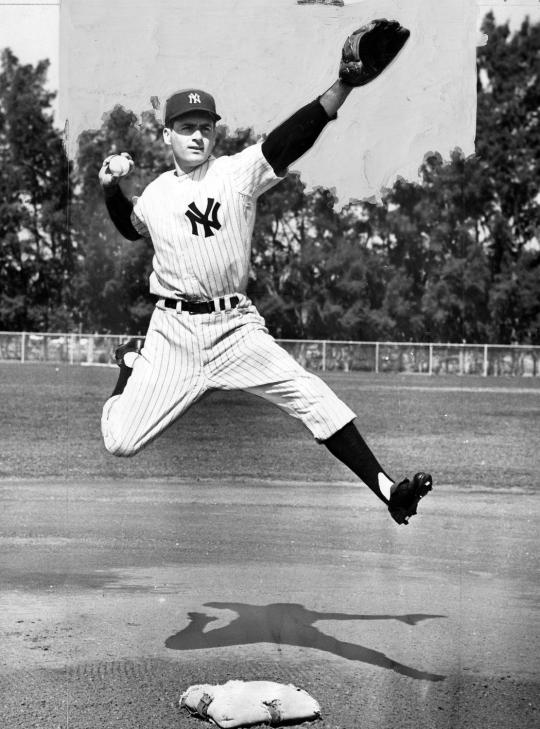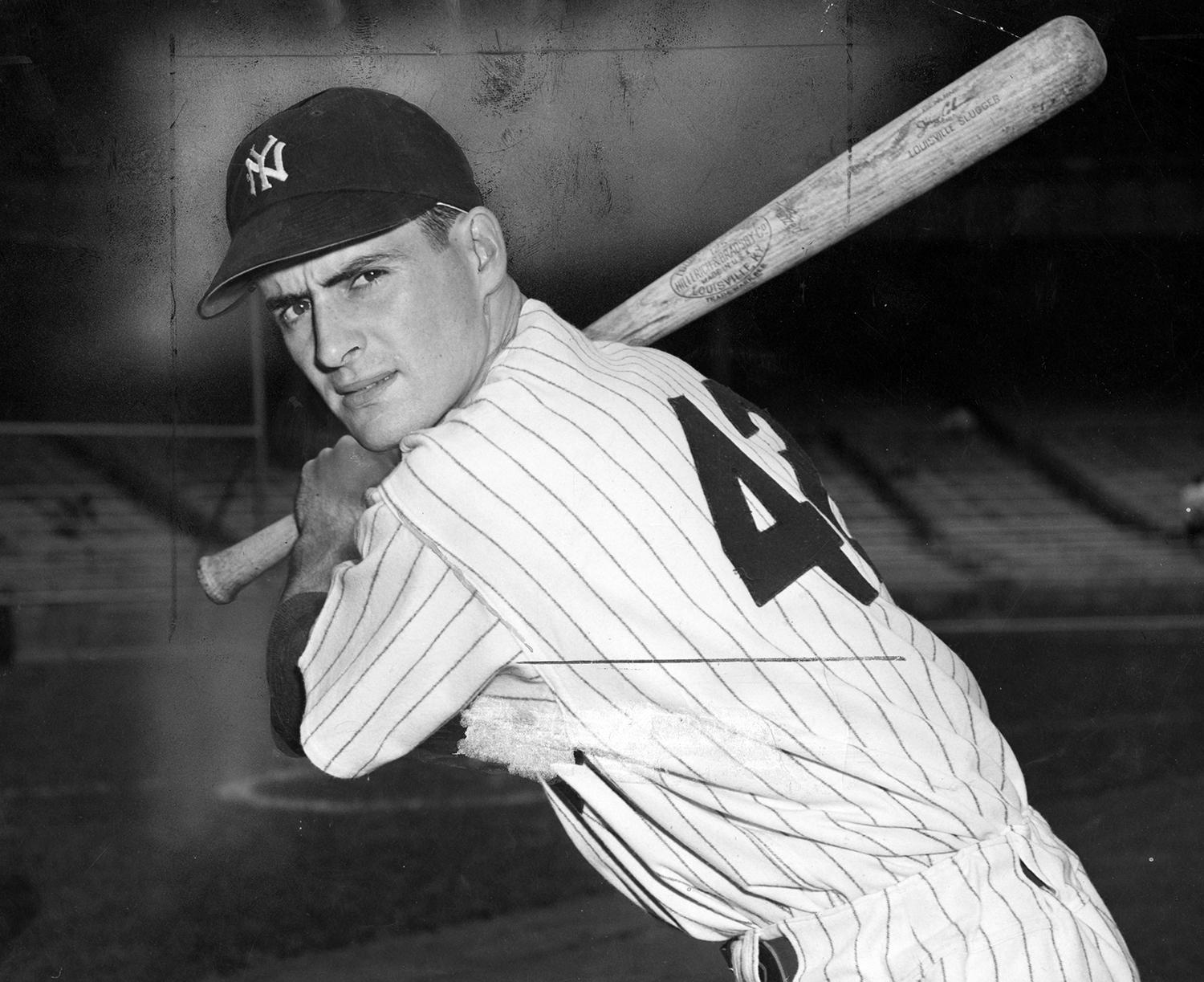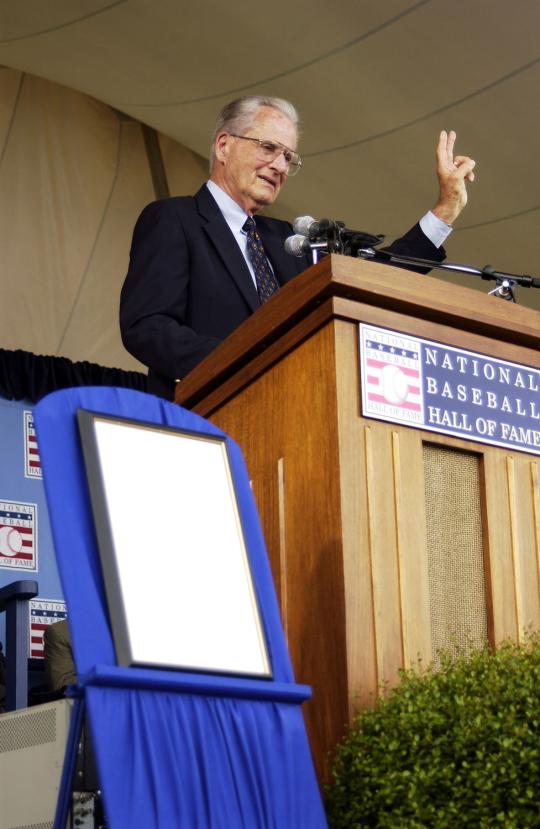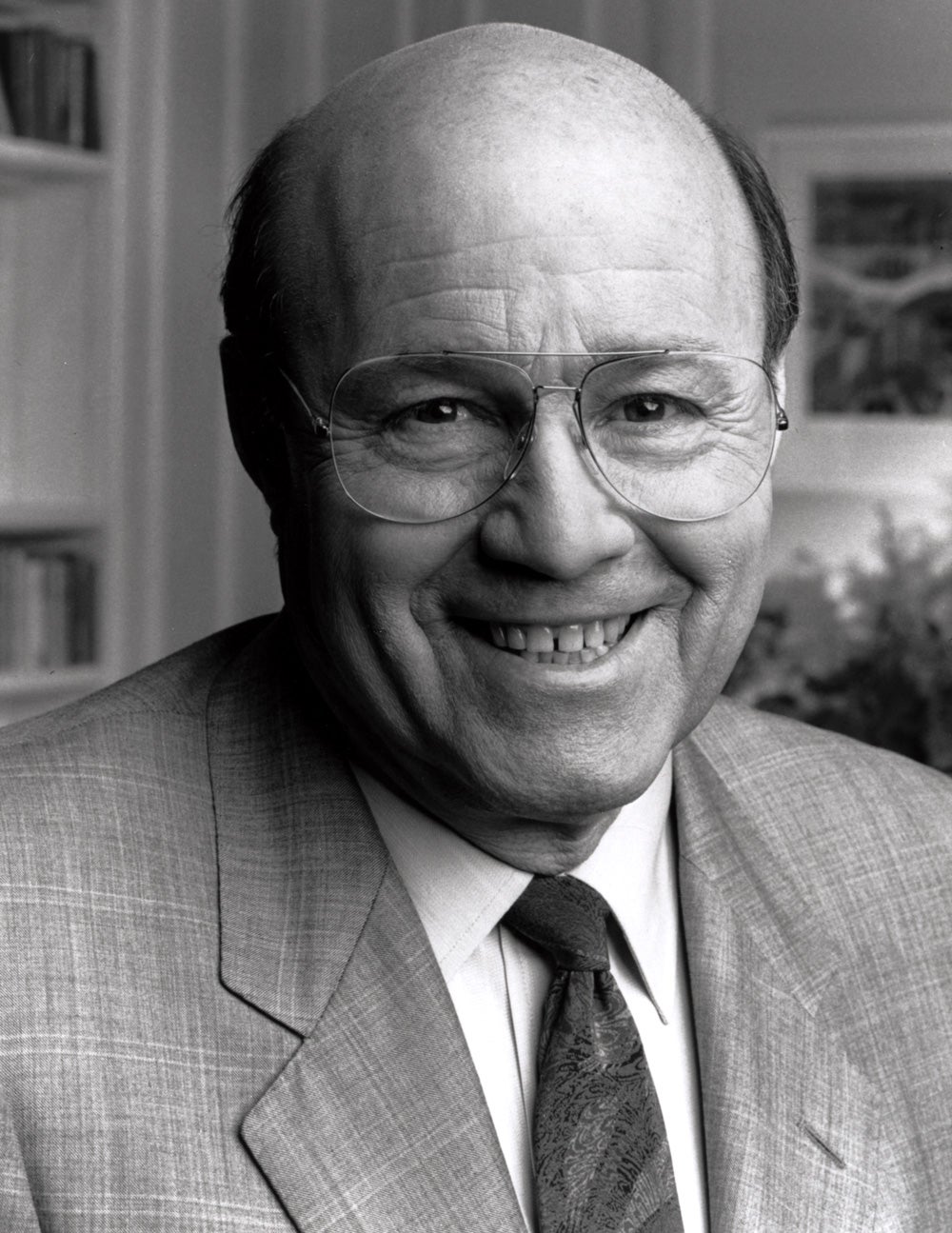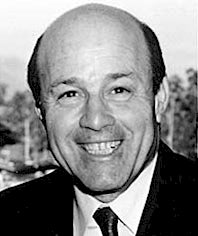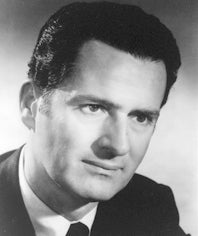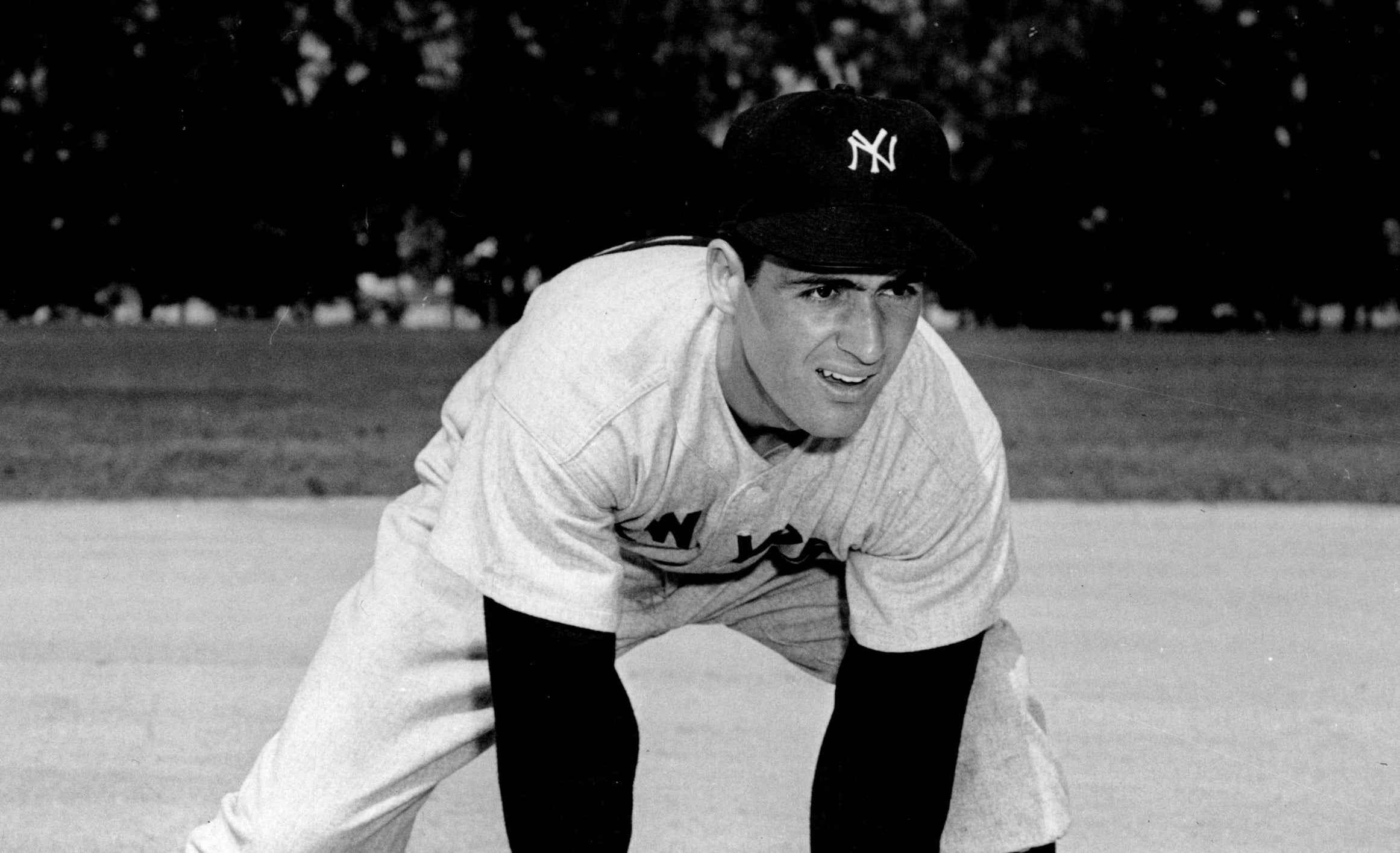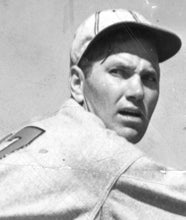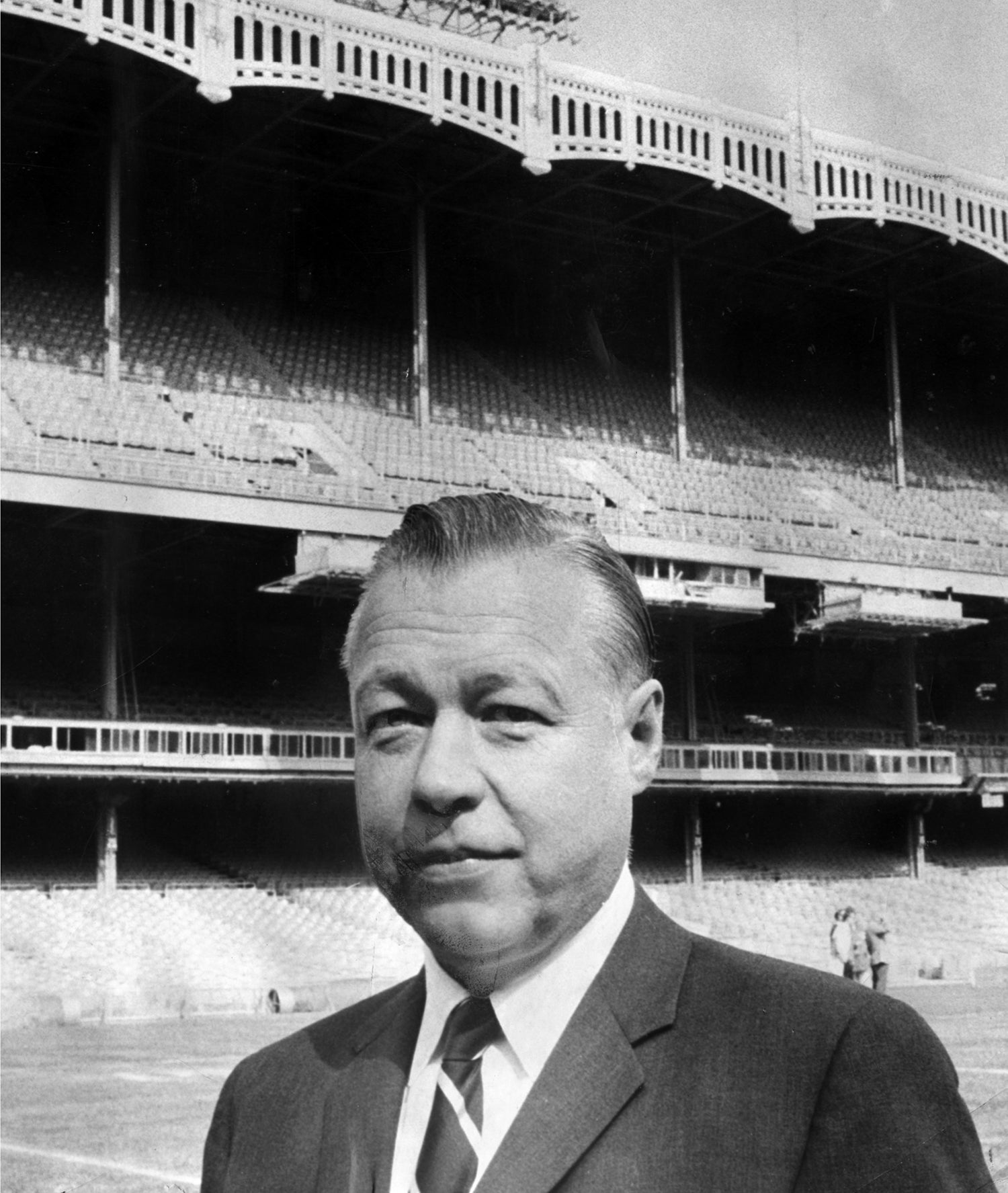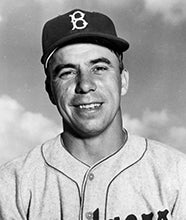- Home
- Our Stories
- Jerry Coleman is named the winner of the Ford C. Frick Award
Jerry Coleman is named the winner of the Ford C. Frick Award
Jerry Coleman was in the broadcast booth for 51 years, calling 42 MLB seasons – 33 of them in a row for the San Diego Padres. But every once in a while, he needed to remind himself of a lesson he learned during his playing days.
“When I was a player, we had an infield coach named Frank Crosetti, one of the great men of all times, he would say “bear down, bear down,” Coleman explained during a press conference. “In my score book, if you look, it says bear down because if you get complacent, [the fans] know it. They say: ‘He’s getting bored, not doing his work.’ If that happens they’ll throw you out, so you must constantly stay alert at what’s going on, understand the game.”
What Crosetti taught Coleman was forever embedded in his fiber when he joined the Marines. The only major league player to see combat in both World War II and the Korean War, the future broadcaster flew 120 missions. He received two distinguished flying crosses, 13 air medals, three Navy citations and retired with the rank of lieutenant colonel.
So it was only fitting that the same weekend Coleman would be honored as the 2005 Ford C. Frick Award Recipient for “major contributions to baseball,” he was also inducted into the Marine Corps Hall of Fame in Quantico, Va.
“You can’t compare the two, they are different animals, one’s for country, the other’s for baseball,” Coleman said of the two honors. “And if you’ve ever been a Marine, you understand the honor there. I was thrilled to death, I’m thrilled with what’s happening (with both inductions). Even Steven I call it.”
On Feb. 22, 2005, Jerry Coleman officially received the news that he would be headed to Cooperstown to receive the Frick Award. The former All-Star infielder played for the Yankees from 1949-1957, making six World Series appearances in his nine seasons on the field. He began his broadcasting career in 1960, and would call games for the Yankees, California Angels and Padres as well as for CBS Radio.
Jerry Coleman was the only Major League Baseball player to see combat in both World War II and the Korean War. (National Baseball Hall of Fame)
Share this image:
“I never really envisioned myself as a broadcaster. I got into [broadcasting] because Bill MacPhail, the brother of Lee MacPhail, was running CBS at the time and he invited me in on the Game of the Week,” Coleman said during a press conference at the Hall of Fame. “I said I just got a job with the Yankees, Bill, I can’t quit that job. So three years later, after I traveled like 300 days a year out of each season, I said ‘Hey, Bill, is that job still open?’ I started with Dizzy Dean and Pee Wee Reese opening up the games.”
Known for the phrases “Oh doctor!” and “You can hang a star on that one!”, Coleman took pride in his the originality of his jargon.
“I try to stay totally away from any kind of other broadcasters because sometimes if you just slip in a little phrase you don’t realize you said it,” he explained. “What you are is what you are and if that doesn’t make it for you, nothing else will.”
Coleman passed away in 2014 at the age of 89. The next year, the Marines created an award in his honor, to recognize a “Marine Staff Non Commissioned Officer who possesses outstanding leadership and unyielding support” for the United States.
“I knew him as a player and admired him as a person. Jerry was a baseball guy. So humble,” fellow Frick Award recipient Joe Garagiola said of Coleman. “One day, I forget who he was asking during a pregame interview, he said ‘How do you make the double play?’ After it was over, I said ‘Jerry, you asking him how to do a double play is like the Pope asking somebody how to say Mass.’ You did it better than anybody.”
Alex Coffey was the communications specialist at the National Baseball Hall of Fame and Museum

